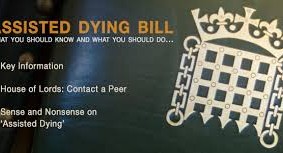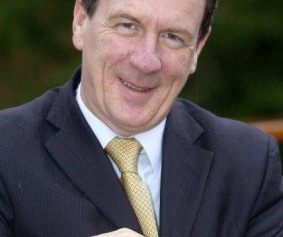Dozens of Public Space Protection Orders now illegal under new Government guidance
Just before Christmas without any publicity at all the Home Office published new Statutory Guidance governing Public Spaces Protection Orders (PSPOs), a power that has been used to ban a wide range of public activities, including ball games, rough sleeping, busking, skate boarding and standing in groups.
The Manifesto Club without whom I worked on this campaign to change the guidance carried out FOI surveys into the use of the PSPO power in the period up until June 2017 (using this data, they estimate that around a fifth of existing PSPOs are explicitly prohibited, or strongly advised against, by the new guidance.
But because of the lack of publicity, as they say in their most recent posting Councils such as Runnymede Borough Council, Ealing Council and Elmbridge Borough Council are are continuing to pass and enforce unreasonable PSPOs.
Read what the Manifesto Group say about the changes.
The important change is that the new Statutory Guidance makes clear that orders should only target the specific behaviour that is causing nuisance or harm, rather than activities that are in themselves harmless (see our analysis of the Guidance changes).
The Guidance states that ‘councils should ensure that the Order is appropriately worded so that it targets the specific behaviour or activity that is causing nuisance or harm and thereby having a detrimental impact on others’ quality of life’.
It also states that PSPOs ‘should not be used to target people based solely on the fact that someone is homeless or rough sleeping’, and that they should not target ‘everyday sociability, such as standing in groups which is not in itself a problem behaviour’.
The Guidance strongly advises against the banning of activities for young people, such as skateboarding, stating: ‘It is important that public spaces are available for the use and enjoyment of a broad spectrum of the public, and that people of all ages are free to gather, talk and play games.’
Our surveys of PSPOs found that, up until June 2017, there had been 319 PSPOs issued by 152 local authorities. Of these, we judge that 64 PSPOs, or a fifth of all orders, either openly violate or strongly go against the terms of the new Statutory Guidance.
This means that dozens of councils have passed orders which violate the new guidance, since they target behaviours that are essentially innocuous.
These include:
- 30 bans on loitering or congregating in groups: the guidance explicitly states that standing in groups ‘is not a problem behaviour’;
- 14 PSPOs introducing dispersal powers (allowing council officers to disperse people from an area): this fails to target a ‘specific behaviour or activity’;
- 3 bans on the wearing of face or head coverings: this activity does not in itself cause nuisance or harm;
- 7 bans on rough sleeping or sleeping in public: the guidance states that rough sleeping itself should not be targeted;
- 7 restrictions on everyday activities in public spaces that are so broad as to be unjustifiable for the aim of preventing detrimental behaviour;
- 3 orders targeting the activities of homeless people, where their behaviour is not actually causing nuisance or harm”
The Guidance strongly advises against the banning of activities for young people, such as skateboarding.
Pharmacy must Seize the Opportunities in Healthcare says Lord C-J
I was recently asked to make the introduction and welcome for delegates to the the Pharmaceutical Group of the European Union Symposium hosted by the Royal Pharmacy Society and the National Pharmaceutical Association. This is what I said.
Leading the Change
Ladies and gentlemen can I first of all say how delighted I am to be able, thanks to the National Pharmacy Association and the PGEU, to join in your President Raj Patel’s welcome to London and this important conference today. It is an awesome thought that the PGEU represents 400,000 pharmacists across the European Union and in my remarks today you will not be mistaken to find more than a tinge of sadness about the UK’s exit from the EU.
As a former health spokesman for my party, then Chair of Council of the School of Pharmacy University of London, now part of University College London and coming up to its 175th year, and an active Vice Chair of the UK’s All Party Parliamentary Pharmacy Group, I have been a supporter of community pharmacy and pharmacists for many years taken a strong interest in the development and resourcing of community pharmacy services and the necessary education and training of young pharmacists.
My plan this morning is set out the current policy and political context and challenges for Community Pharmacy in the UK and what I believe it can achieve if gets its act together in a manner which is really credible to your external audiences and I am delighted that my good friend and long term collaborator -not least over the years in the annual School of Pharmacy lecture-Emeritus Professor of Pharmaceutical and Public Health Policy David Taylor, who with his colleagues at the School has done so much to critique and develop public policy in this area, including the important area of medicines management, is joining me on the the platform today too.
He will be highlighting some of the difficult questions that need to be answered by pharmacy leaders in the face of the demands of change and wider health and political institutions.
Let me say right from the start that I firmly believe that community pharmacy has much more to look to in its future than its past.
For several years now there has been a common vision- expressed in a succession of reports both by pharmacists themselves, such as 20 years ago The Royal Pharmaceutical Society’s Pharmacy In A New Age initiative and more recently in in Now or Never: Shaping Pharmacy For the Future; Government White Papers such as “Pharmacy in England: Building on Strengths and Delivering the Future” in 2008 and more recently the package of the package of reforms, including changes to the community pharmacy contractual framework announced last October; numerous supportive and insightful reports from my own All Party Parliamentary Pharmacy Group, and the Murray Review for NHS England into Community Pharmacy Clinical Services, particularly important in the light of the new Sustainability and Transformation Plans and the NHS 5-Year Forward Plan. Finally, of course, contributions from the European Pharmacists Forum such as the role of pharmacy in supporting the Public’s Health, in 2015.
All conclude that community pharmacy should not just be able to keep its medicines supply role but should and is able to offer an extended range of health care services in fields ranging from prevention and early diagnosis through to the management of chronic conditions and supporting self care.
And successive governments in a piecemeal way have tried to respond to this variously through legislation.
The essence of the vision is that pharmacies and pharmacists are able to:
- offer professional support for self-care and speed access to diagnosis and early stage treatments; and
- make optimal use of new IT based capacities in areas ranging from locally managed dispensing to the implementation of national public health programmes like smoking cessation support and the prevention and control of cardiovascular diseases and conditions such as type 2 diabetes.
This reflects the fact that since the start of the 20th Century there has already been a profound change in pharmacy – in essence, from making medicines to safely supplying the products of the pharmaceutical revolution. The focus of the latter has moved from antibiotics like the sulphonamides and penicillin to targeted anti-cancer treatments like Imatinib, as well as the provision of medicines like anti-hypertensive and lipid lowering products.
However, since the 1960s, ie during the last half century, another change has been put on the public policy table - from pharmaceutical supply to providing clinical pharmacy services – health care provided directly by pharmacists in a community setting.
The fact is however that this vision and these good intentions have not produced speedy outcomes, there has been a gap between rhetoric and reality.
Frustratingly, progress in making the best use of the valuable resource represented by community pharmacy in the UK has been slow for a whole range of reasons some external to healthcare some internal:
- Inappropriately constructed commissioning and funding mechanisms and constant change in those mechanisms,
- misallocation of resources;
- attitudes and culture in other health professionals patrolling boundaries;
- frequency of changes in Ministerial responsibility inconsistency in policy and lack of understanding by politicians of the clinical potential of community pharmacy;
- but significantly also because of a lack of self-confidence and assertiveness in the pharmacy profession itself and this includes over read and write access to patient records.
It could be argued that the slow pace of change means that many of our young pharmacists are over educated for what in many cases they do. We must use our community pharmacists to better clinical effect.
So given over a long period of time that we have a great deal of agreement on a common vision what needs to be done to drive desirable change?
David and I do not pretend to know the answers but hope our opening questions can help make the day a successful way of taking your plans forward.
Across Europe important issues currently relate to implementing the Falsified Medicines Directive and ensuring the proposed Proportionality Directive is appropriately drafted, plus from the UK point of view accommodating the challenge of Brexit and the future of the NHS which - it is no secret - is facing a funding challenge.
But key point I want to make today is that the intellectual case for a change in the direction of providing clinical care in the community pharmacy setting - and when appropriate in partnership with other primary and secondary care providers - is in large part won.
Few now oppose pharmacists doing more to improve health outcomes in areas such as, say, contraception provision and use or the management of vascular disease risks and relieving doctor’s workloads while providing many people with more convenient access to medicines when they need it.
So given we have this great resource and the necessary demand why is there a danger in countries like Britain of community pharmacy being cut back to little more than a minimal cost supply function involving large scale mechanised dispensing and lowest possible cost medicines delivery systems?
My key message is framed from a political perspective. It is:
Politicians, irritating though they are, and I’m not going to absolve them from responsibility from where we are, by and large want to help, but to help you they need across party to achieve consistency in having:-
- a clear picture of the public interest related problem helping community pharmacists will help to resolve and;
- a really clear and credible explanation of how community pharmacy will cost effectively solve the problem for the people we mutually seek to serve.
- A clear understanding of the barriers to the realisation of this vision
The bottom line is that it is no use coming to politicians just saying help us for the sake of the profession itself. As a lawyer I know that, I am in short order replaceable by Artificial Intelligence for example!
Community pharmacists need to keep developing their clinical case more powerfully saying that together they can help patients and the public and resolve some of the key problems facing us in health care delivery and resourcing. Pan European events like today are in my view crucial in that task.
Reduce FOBT stake to £2 says Lord C-J
Earlier this year I put forward a Private Members Bill in the Lords to reduce the FOBT maximum stake currently set at £100 to £2. This is the argument I made.
Through the Bill I am today pursuing a matter of considerable concern that has been raised in this House on a number of previous occasions by myself and my noble friends in particular, and which reflects great concern outside in the country.
Fixed-odds betting terminals—FOBTs—are touch-screen roulette machines in betting shops that allow the user to bet up to £100 every 20-second spin. They have transformed the betting sector since their introduction in 2001, and the Gambling Act 2005 classified FOBTs as B2s. The noble Baroness, Lady Jowell, stated at the time that if evidence of harm emerged, the £100 stake could be reduced as FOBTs were “on probation”. It is clear that the experiment to allow high-speed roulette in easily accessible betting shops has been a disaster and it is notable that as a result, the noble Baroness, Lady Jowell, herself recently called on the Government to act as the evidence of harm continues to build.
The essence of my Bill is to reduce the stake to £2 a spin. This is the maximum stake on gambling machines in all other easily accessible venues such as arcades and bingo halls. It will reduce gambling-related harm, prevent further betting shop clustering and restrict high-street money laundering.
The human misery caused is enormous. I will not rehearse all the harrowing stories, but many have been reported and they are extremely distressing. Clinical psychologist Anna Henry, who treats gambling addicts, said that FOBTs are designed to foster addiction:
“Basically the industry has created casinos in the High Street … These machines isolate the player, there is nothing to distract him from that screen. Its speed is to encourage frenzy. And thus more spending”.
More crime takes place in betting shops than in any other gambling venue. A freedom of information request to the Gambling Commission revealed 11,232 incidents in 8,980 betting shops from January to December 2014—an average of 1.25 incidents per premises, up from 0.82 the previous year. This compares to just 479 incidents related to the remaining 2,747 venues. These incidents account for 97% of police call-outs to all gambling venues.
The reality is that these machines are highly dangerous products which are a catalyst for problem gambling, social breakdown and serious crime in communities. Just take the case of a gambler in Leeds who was given a two-year sentence for attacking a betting shop worker
with a knife. The man had lost £1,000 playing FOBTs—money that was intended to be a deposit on a flat. He said that he was “utterly possessed” by the machines.
FOBTs are also useful to money launderers, as huge amounts of cash can be inserted into the terminals to legitimise the proceeds of crime. There were 633 suspicious activity reports in betting shops last year related to money laundering, but much of it goes unreported. A Gambling Commission report that will be considered by the Treasury said:
“The betting sector is regarded as high-risk relative to other gambling sectors. The customer base is varied, and often customers remain anonymous to the operator within the non-remote sector. The reporting and detection of suspicious transactions in the non-remote betting sector is often frustrated by the ability of a customer to remain anonymous”.
Bookmakers have a legal duty to comply with the licensing objectives of the Gambling Act 2005, but how can they comply and keep gambling crime-free and harm-free when the FOBT stakes are so high? Each betting shop is permitted four FOBTs, which now account for more than half of bookmakers’ profits. One has only to look at the importance of these machines in the recent figures for William Hill and Ladbrokes. The gross win on each machine is worth £1,000 a week. That led to a 43% increase in the number of betting shops on the high street between 2004 and 2012.
While planning authorities are in a better position to refuse applications, licensing authorities are still required to aim to permit betting shops. They are still powerless to stop the proliferation of betting shops and FOBTs on the high street. One street in the London Borough of Newham has 18 betting shops. As a result, 93 local authorities led by Newham Borough Council submitted a proposal under the Sustainable Communities Act. They called for the stake to be cut to £2 due to the anti-social behaviour, crime and problem gambling that the machines are causing in their local areas. This unprecedented step represents the widest support that any Sustainable Communities Act proposal has ever received. The Government rejected that proposal last year, but the Local Government Association has since resubmitted it under the terms of the FCA. What will the Government’s response be in the coming months, when discussions are due to take place?
There are wider economic arguments. There has been much scaremongering about the economic impact of any action to restrict FOBT machines. The ABB has claimed that 7,800 betting shops and 39,000 jobs would be at risk if there were a reduction in the maximum FOBT stake from £100 to £2 per spin. However, a report by NERA Economic Consulting, The Stake of the Nation—Balancing the Bookies, concluded that cutting the stake on these machines would reduce the number of bookmakers by about 800, primarily where clusters had developed. Moreover, it found that the move would create a net positive 2,000 or so high-street jobs as money returned to other, more labour-intensive and productive high-street shops.
Elsewhere, other Governments are concerned about the impact of these terminals. The machines are already banned in Ireland. Above all, there is the impact of
FOBTs on the vulnerable and the disadvantaged. Research published last year by SPICe, the Scottish Parliament Information Centre, found that problem gambling is seven times higher in deprived areas, seven times higher among harmful drinkers and six times higher among the mentally ill. A 2014 survey by 2CV found that 80% of all betting shop users think that FOBTs are addictive, rising to 89% among FOBT users. The survey found evidence of harmful levels of gambling. Users playing weekly or more often account for 63% of session activity and 90% of cash inserted into FOBTs.
We have all seen that the Responsible Gambling Trust is now facing problems with the Charity Commission as a result of conflicts of interest on its trustee board. I do not want to add to its woes but its lengthy research programme failed to carry out its primary purpose—establishing whether FOBTs are safe. It did, however, provide some insight into worrying trends in machine gambling, including the fact that a person gambling with higher stakes is more likely to make a poorer judgment than when gambling with lower stakes, that the number of people betting the maximum £100 stake doubles between 10 pm and midnight, and that 37% of FOBT gamblers are problem gamblers. The Gambling Commission has stated that, in interpreting the available evidence where the evidence is mixed or inconclusive, it will take a precautionary approach in accordance with its principles for licensing and regulation. So surely, in the face of this evidence, the stake should be reduced until there is an indication that it can be safely increased above £2.
The fact is that government measures to date have been ineffective. After months of grass-roots pressure and concerns expressed across the country, last year the Government introduced the Gaming Machine (Circumstances of Use) (Amendment) Regulations 2015, which were implemented on 6 April. These regulations require FOBT customers to authorise stakes of £50 or more either via account-based play or via over-the-counter staff authorisation. In January 2016, the DCMS published an evaluation of the impact of the regulations. However, a study by Landman Economics has demonstrated that the DCMS was completely unable to determine whether the regulations on the £50 stake had led to an increase in player control, let alone a reduction in the number of problem gamblers. The DCMS argues that increased session length may have led to more considered decision-making, but the time between spins increased only very marginally. It is much more likely that players who used to stake up to the £50 to £100 range are simply losing their money more slowly. This would not represent more controlled play. The report concludes that the DCMS evaluation is flawed and cannot realistically be used as a reliable guide to policy.
Where one has regard to the scale and nature of the problems that FOBT machines are causing, on the precautionary principle a very much more serious and more appropriate response is required, as set out in the Bill before us. The time for tinkering has gone, and there is no doubt that the public support action against FOBTs. In fact, a YouGov poll showed that only 4% of the public would oppose a ban on them, with 58% of those who gamble more than once a month being in favour of an all-out ban. ComRes polling showed
that two-thirds of people in marginal constituencies believe that FOBT machines are harmful and they support the reduction of the maximum stake to £2. FOBTs are destroying lives and damaging communities. The Bill will reduce the maximum stake on FOBTs to £2 a spin. I believe that it will reduce the serious harm caused by the machines, deter money laundering and reduce betting shop clustering on the high street.
I am an optimist and I very much hope that the Government will support the Bill. Modest though it is, if the Government reject it, and especially if they claim that they can achieve the same goals by other means, I believe they will be obliged to answer some vital questions. Will the Minister confirm when the next review of stakes and prizes is due to take place, and that the issue of FOBT stakes will be included within it? Does he agree that, as proposed by the Gambling Commission, and given the evident harms that FOBTs are causing, the Government should act on a precautionary basis and reduce the stake on FOBTs? In that context, does the Minister believe that a substantial review of FOBTs stakes is the best way to deal with the harms the terminals are causing? Will he make sure that FOBTs are properly regulated through harm-mitigation measures to ensure that they no longer present a risk to the vulnerable? If so, how? And how will the Minister ensure that the Government properly address the money-laundering risk that FOBTs present?
The remainder of the debate and the Minister's reply is at :
http://www.publications.parliament.uk/pa/ld201516/ldhansrd/text/160311-0001.htm#16031122000325
Lord C-J launches bill to cut FOBT stakes
The first serious legislative attempt to enforce a reduction in the maximum stake for Fixed Odd Betting Terminals (FOBTs) is underway as my new Gambling Bill was published this week
FOBTs were first introduced in 1999 but particularly in the last five years, concerns have grown as it has become increasingly apparent that they account for the most addictive form of gambling with disturbing socially destructive consequences.
The growing level of public disquiet coupled with clear evidence of a link between the placements of FOBTs and social deprivation has led to the issue being called the ‘crack cocaine of gambling’.
The Gambling (Categorisation and use of B2 gaming machines) Bill proposes to cut the maximum stake on FOBT machines from £100 to just £2.
Leading social policy charity CARE, who campaign for legislative changes to the law to address problem gambling, has called on the government to recognise the need for urgent action by giving the Bill time in the House of Lords for a proper debate to take place.
The social disruption left in the wake of FOBTs, and growing level of public concern associated with them, is now such that the status quo is unsustainable.The law needs to change.
The reduction of FOBT stakes from £100 to £2 proposed by my Bill will transform FOBTs so that rather than being the source of real suffering and hardship as is the case today, they become instead relatively benign forms of entertainment.”
The addictive challenge arising out of FOBTs results from the combination of the £100 stake and the very rapid speed of play that is the FOBT’s trade mark.
The £100 stake and rapid speed of play means that it is possible to lose large amounts of money in very short periods of time.
The best way to address the problem is to end this dangerous combination by reducing the stake from £100 to £2 which is exactly what the Gambling Bill does and CARE very much hopes that the Government will recognise that something must be done and give time for my FOBT Bill.”
The Bill has been published on the Parliament’s website and can be read here:
http://services.parliament.uk/bills/2015-16/gamblingcategorisationanduseofb2gamingmachines.html
Since their introduction FOBTs have yielded almost £1.6million for bookmakers. According to the Campaign for Fairer Gambling, mapping of betting shops and estimates of FOBTs gambling and losses revealed that high stakes gambling machines suck money from the poorest communities.
Research published in 2012 compared 15 different gambling activities and estimated that the percentage of FOBT losses from problem gamblers was 23 per cent:
http://www.tandfonline.com/doi/abs/10.1080/14459795.2012.689001
A BBC Panorama investigation in 2012 published police statistics showing there had been a nine per cent increase in crimes associated with betting shops since 2008:
http://www.bbc.co.uk/news/uk-20182750
Senior Business People Emphasize the Value of International Students
Last week I co-signed a letter to the FT as follows
International students are vital to the UK’s prosperity
Sir, The public supports an immigration system that welcomes individuals who make a contribution while they are in the UK. It is unsurprising, therefore, that the majority of people look favourably on the 310,000 or so university students who come here from outside the EU. Indeed, according to an ICM poll, 75 per cent think that international students should be allowed to stay and work in the UK after graduating from our universities, applying their skills and ideas. We think that the continued contribution of these skills and ideas to businesses, both large and small, is absolutely vital to the future prosperity of the UK. Many of the world’s brightest minds and entrepreneurs have studied at our universities in recent years — for example, the third of Nobel laureates since 2000 working in UK universities who were born overseas. We do not want to lose these talented people to our competitor economies as a result of ill-thought-out immigration policies.
Martha Lane Fox
Baroness Lane-Fox of Soho
Digby Jones
Lord Jones of Birmingham
John Fallon
CEO, Pearson
Sir Martin Sorrell
CEO, WPP
Simon Collins
UK Chairman and Senior Partner, KPMG
Lord Bilimoria
Founder, Cobra Beer
Toby Peyton-Jones
HR Director, Siemens
Simon Walker
Director General, Institute of Directors
John Longworth
Director General, British Chambers of Commerce
Robert Elliott
Senior Partner, Linklaters
Sir Peter Bonfield
Truchas Associates
Des Gunewardena
Chair and CEO, D & D London
Rob Woodward
CEO, STV
Bob Rothenberg
Senior Partner, Blick Rothenberg
Lord Clement-Jones
London Managing Partner, DLA Piper UK
Terry Scuoler
CEO, EEF, the manufacturers’ organisation
Baroness Jo Valentine
Chief Executive, London First
Reduce The Maximum Stake on FOBTs
Recently in the Lords I have been arguing (along with John Leech MP and Lord Strasburger) for a major reduction in the maximum permitted stake for Fixed Odd Betting Machines.
Currently this is £100. This allows users to bet up to £100 every 20 seconds. During 2013, £1.6 billion was lost by gamblers on FOBTs in Britain, with most of the money coming from some of the UK’s most deprived communities. There are now some 34,500 FOBTs across the UK. The £100 stake on FOBTs is more than 40 times the EU average; combined with the fast pace of play, this makes them particularly dangerous, leading to high levels of problem gambling.
Current Government proposals to require account-based play via a loyalty card or similar system or talking to a staff member if a customer wants to bet more than £50 per play are inadequate. It does not amount to a stake reduction.
Here is the link to the Lords Debate
http://www.publications.parliament.uk/pa/ld201415/ldhansrd/text/150224-0003.htm#15022476000486
And here is the Link to the piece I wrote for Lib Dem Voice
I'm supporting the We love Vauxhall Bus Station Campaign!
See the Facebook Group here
https://www.facebook.com/pages/We-love-Vauxhall-Bus-Station/207071692827334?ref=stream
And the Petition site:
As the campaigners say: "Vauxhall Bus Station, London's second busiest bus station, is a vital resource, an amenity allowing people from all over London to interchange with bus/train and Tube quickly, safely, under cover and with minimum exposure to the traffic pollution of the Vauxhall Gyratory. It is Lambeth Council’s ambition to demolish the bus station and disperse bus stops to roadside positions around Vauxhall Cross"
The interchange was only built only 10 years ago at a cost of £4 million pounds. It is also a fine piece of design by Arup . As they say on their website "It has stimulated the growth of local businesses, spurred the upgrade of other local transport, encouraged 40% more people to use the area and dramatically improved the day-to-day lives of the thousands of individuals who pass through the station every day."
Let's keep it!
Government Rides to Rescue of Levy
With excellent timing in the Year of the Horse and just before the opening of the Cheltenham Festival, following pressure mainly from Coalition parties (Viscount Astor, Lord Mancroft, myself and others) and the Crossbenches (Viscount Falkland) the Government announced on Report Stage in the House of Lords that they would be inserting a new clause in the Gambling (Licensing and Advertising) Bill at Third Reading to enable the Horserace Betting Levy to be extended to include offshore bookmakers who do not currently pay the Levy. This has now taken place.
With the value of the Levy having fallen drastically in recent years (from £106m in 2003/4 to £66.7 m in 2012/13) this is very good news for horse racing which is this country's second most popular sport, with 5.6 attendees at events in 2012, and which makes a substantial contribution to the UK economy.
Why I am against the Assisted Dying Bill
Sadly I am unable to be present for and take part in the Debate on the Second Reading of the Assisted Dying Bill this Friday and I have been unable to reply to the huge volume of correspondence but I want to put my views on record beforehand
Some colleagues have changed their minds on the subject since Lord Joffe's Bill came to parliament a few years ago. I have not.
The Bill is designed allow doctors to give lethal drugs to adults thought to be mentally competent and diagnosed with less than six months to live.
There are many who view the safeguards in the Bill as inadequate and the systems to tackle undue influence inadequate . Mine are more fundamental-the inability of doctors and modern medicine to be at all sure about prognosis and life expectancy.
My late wife Dr Vicky Clement-Jones for example was given 3 months to live with late stage Ovarian Cancer but survived for 5 years and in that time established Cancer Bacup's Cancer Information Service now run by Macmillan Cancer Support.
This is an extract from Dr Ruth Johnston to Lord Carey, formerly Archbishop of Canterbury which sums up my thoughts entirely:
I write as a doctor working in oncology, with relation to the article you authored in the 'Daily Mail' on 12th July 2014.
I work primarily with patients who have lung cancer. The majority of these patients have Stage IV (metastatic) disease, which is inoperable and incurable, and in whom the median survival is generally of the order of 6 months.
I offer my patients the opportunity to discuss prognosis, and if they want to know this information, I explain that median survival is the time when 50% of patients (with their particular disease type and stage) are alive and 50% are dead. I always explain that predicting survival times is difficult and that some patients do much better than their doctors initially expect. I still review several patients who were originally considered by their oncologist to have a prognosis of less that one year, yet who are alive between 3-5 years after the initial diagnosis.
I write this to explain that determining prognosis, even in a quite predictable disease such as cancer where there are survival statistics available, is difficult, non-exact, and prone to error even among the most experienced practitioners. It is important to recognise that there can be a considerable range of survival times and that long term survivors are known in patients assessed by an oncologist and considered to have 'terminal cancer'.
The ability to determine prognosis in other diseases, such as progressive neurological diseases, chronic heart, lung or kidney disease etc. is much more difficult, and prediction of survival times is prone to even more significant error.
In a Bill which allows there certifying doctors no requirement to know the patient in question, I think it is unlikely that a doctor who has not met the patient can provide accurate information on prognosis for differing disease types and stages.
I have reflected on the effect implementation of an Assisted Euthanasia Bill would have on my practice: while advising a patient with Stage 4 lung cancer of their diagnosis and treatment options and providing prognostic information, my patient and I would be aware that the an assisted death would be a possible 'option' given their short survival times (i.e. as per the proposed Bill 'reasonably expected' to die within six months). I think that an 'assisted dying' option would negatively impact my relationship with my patient, who might fear that I and the other health professionals involved in their care might not offer the full options of treatment available, or that by discussing survival times doctors might have the motive of opening up the patient's consideration of assisted dying.
Symptoms of fatigue, depression and, not infrequently, disability, are often seen in patients with advanced malignancy. Assisted dying is conceivably going to be offered to patients who have the potential for reversibility of symptoms and alleviation of distress with the help of (among others) oncology, palliative medicine and general practitioner services. I am concerned that my cancer patients who often have understandable anxiety and depression at their diagnosis, may fear being a burden to their family and the health service, and choose an assisted death. A painful death or terminal suffering is not common in cancer patients: raising the fear of the death process may cause my lung cancer patients to feel they should end life early, rather than risk a difficult death.
To me the Bill is completely perverse to a medical practitioner. I trained and practice in medicine to help patients, to preserve life and to 'first do no wrong'. Killing is wrong, and it is wrong to ask a doctor to prescribe a deliberately lethal dose of medicine, while also anticipating the same doctor will care and cure.
Speech on startups gets a response!
The day after my creative industries speech I was delighted to receive the following email from Care Home Owner David Crabtree. As I said to him "You inspire me back. It's really good to know someone is listening! Please do persevere with your project"
Dear Lord Clement - Jones
By chance as I switched on my TV this morning at 6 a.m as you were delivering a speech and outlining the many resources for funding and encouragement of digital and other media start ups.
Your speech was inspiring, very informative, and extremely well delivered as I would normally have skipped the TV channel.
I have been nursing for over forty years and whilst many were spent in the field of addiction working with alcohol and drug dependents and their families, I started out and now finish my career working with people and their families who suffer from dementia.
Many are under 60 and their dementia, Korsakoffs has been brought about primarily by the addiction to alcohol.
It is in doing this work, I have been trying to source a digital watch which will alert the family member to someone leaving the home, combined with a gps tracking system which will locate the watch and it's wearer should they go beyond a pre set parameter.
Many years ago I was a nurse in a ward where someone wondered off and despite police helicopters and tracker dogs they were found dead some three days later. The police resources we spend looking for people with dementia is very costly.
I have now sourced one in the UK but the costs may be too prohibitive at the moment for general use, which is why your speech was so informative and timely.
In working as a counsellor with addiction and families one never knows if the information you give out will be of any use, as it can take many years and attempts to get clean, as I know only too well from person experience, so the saying in AA is that a flower never sees the seed.
Today your speech has inspired me to see if the technology and start up funding for the watch is available in the UK, and I wanted to both acknowledge your work and thank you.
My best wishes to you and your family , and should you come North meeting for coffee would be a great pleasure for me.
Many thanks again for all the work you do on behalf of so many of us.
David Crabtree R.M.N
www.crabtreecarehomes.co.uk<http://www.crabtreecarehomes.co.uk>
http://m.youtube.com/watch?v=Q4kqLeMoSi8&feature=plc









